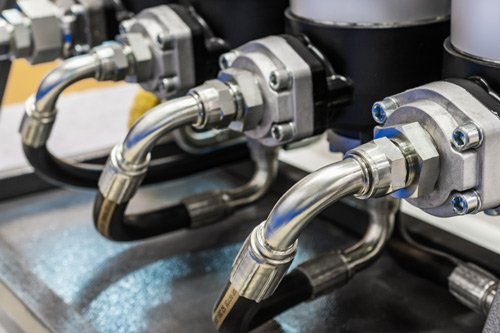Maintaining the Hydraulic Components of Your Hydraulic Flange Spreader
- By Admin
- •
- 18 Mar, 2019

Hydraulic flange spreaders have various uses across several industries. No matter how you use your spreader, you need to make sure that the hydraulic components of it are in good condition. After all, a flange spreader is capable of exerting thousands of pounds of force. You'll want to have it in excellent condition at all times.
Follow the Manufacturer's Recommendations
Before doing anything else, check the guidelines from your spreader's manufacturer. Hydraulic flange spreaders aren't all the same. Some manufacturers will have maintenance and troubleshooting tips for one model that doesn't apply to others.
If you don't have the manual, check the manufacturer's website. The site may have links to download a manual or sections dedicated to your spreader model. The manufacturer may also have a forum or other place where you can ask questions.
Make Daily Inspections of Hoses, Couplings, and Fittings
Make checking the hoses and connections a daily habit. Look for wear, damage, or any other signs of issues. For example, a hose with a bend or a kink will create pressure in the hose that will cause it to fail prematurely.
Also, keep an eye out for signs of leaks. If you do see a leak, don't panic. Some of the maintenance tips here can help you eliminate small leaks.
Tighten Connections Where Possible
Don't just do a visual inspection. As you inspect the spreader's components, also check to make sure that all connections are tight. In cases where you can't tighten connections by hand, you can apply pipe thread sealant.
When using pipe thread sealant, avoid the tape variety if possible. A piece of tape can come loose and enter the hydraulic system, which can cause contamination and obstruction.
Keep the Hydraulic Components Clean and Free of Debris
Hydraulic components can collect debris. Couplings and connectors can introduce contamination into the hydraulic fluid and increase the possibility of leaks. The hydraulic hoses can also become sources of contamination.
You can wipe the couplings down, but a complete cleaning will require you to disassemble the hydraulic components. Cleaning each piece inside and out is the best way to go about it, but this is not something for amateurs to attempt. Doing it wrong can introduce even more contamination into the hydraulic system.
Several methods for cleaning hydraulic hoses exist. You can shoot compressed air through them, purchase a hose-cleaning kit, or clean them as part of an overall system flush.
The best way to keep the hydraulic components clean is to keep the spreader itself clean. Take efforts to keep away all dirt and debris. When it’s not in use, keep the spreader covered.
Change the Hydraulic Fluid When Necessary
The manufacturer of your spreader will have guidelines for when to replace the hydraulic fluid and what type of fluid you should use. Generally, you can tell you're dealing with contaminated hydraulic fluid from some of the following indicators:
-
Increased operating temperature
-
Constant leaks
-
Solids, resin, sludge, or particles in the fluid reservoir
If the spreader shows signs of operational issues, such as inconsistent power, contamination may be a cause. In all cases, you should flush the system and replace the hydraulic fluid.
Replace Components Sooner Rather Than Later
Replace hoses, fittings, adapters, and other easily replaceable parts as soon as possible. Keep spares of many of these parts. Even if you're not sure about a particular problem, it's typically better to err on the side of caution and replace a component. You should always replace some fitting components, such as O-rings, rather than reuse them.
When it comes to replacing hydraulic components of your hydraulic flange spreader, always choose high-quality replacements. At KIMS International, we have the hydraulic hoses and couplers you need to keep your spreader working efficiently. Contact us today.
Business Hours
- Mon - Fri
- -
- Saturday
- -
- Sunday
- Closed






